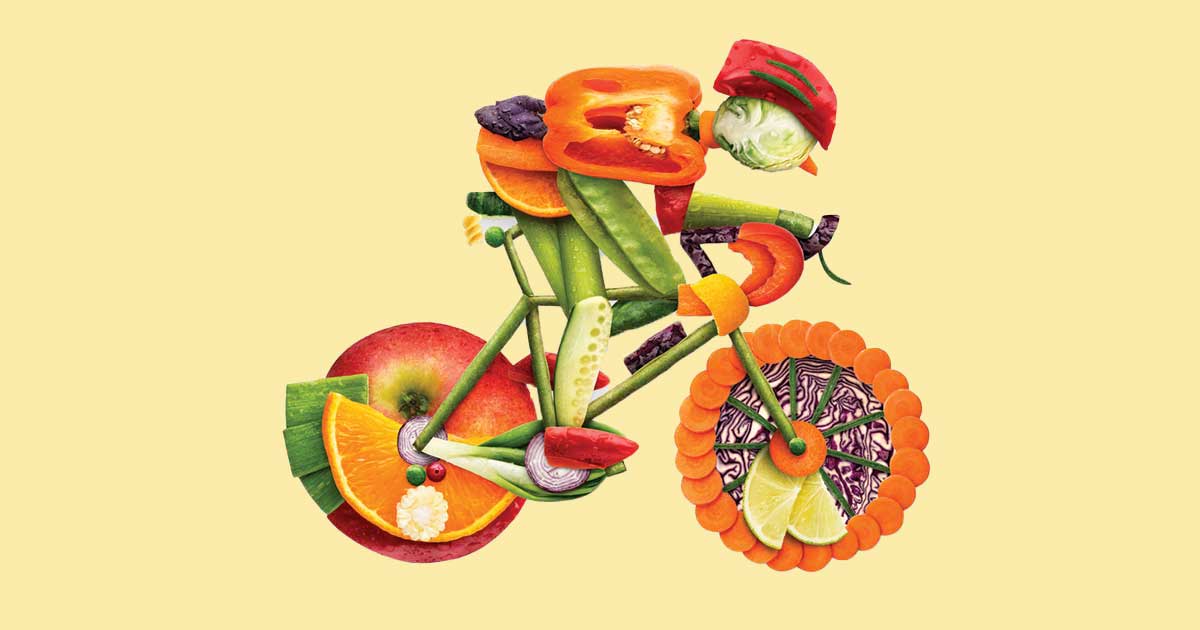I’m often asked a few common nutrition questions that revolve around what to eat before, during, and after training. The answer is obvious, food. My job here is done. All joking aside, the answer depends on a few different factors.
A typical meal takes between 5 and 13 hours to digest with fat taking longer than carbohydrates and protein to digest. With that being said, during a workout or competition faster gastric emptying (how fast food is digested) results in improved fluid and electrolyte balance and reduces the incidence of stomach distress. The closer in time that you are to the start of a workout, the more carbohydrates and less protein and fat you should consume. Carbohydrates digest quicker than protein and fat, but you must be careful to not consume too many carbohydrates that are high in fiber (beans, berries, whole grains, etc.) because they can cause stomach distress. I’m not saying don’t have any protein, fat, or fiber before a workout because your body needs all of these to function at its best and everyone is different. Some people can tolerate these things better than others, so you can adjust as needed but as a general rule of thumb stick to mainly carbohydrates before a workout/competition to minimize stomach discomfort and optimize performance.
Now for during your workout the average gym goer doesn’t need to consume any food during their workout, unless they are in a fasted state and are feeling lethargic during their workout. However, the longer you workout the need to consume food during your workout increases because working out depletes your energy stores, which for the most part come from carbohydrates.
Athletes who are training for longer than two hours should be consuming some form of carbohydrates like sports drinks or carbohydrate supplements (energy chews, powders, etc.). These are probably the most common choices because liquids empty in the stomach faster than solid food so it provides a quick source of energy while minimizing the risk of stomach discomfort.
The average person however, will be completely fine without eating during their workout. Just make sure you replenish your body with carbohydrates, fat, protein, and plenty of water throughout the day once your workout is completed.
One of the most common questions I receive when I start working with a new client is “Should I consume protein immediately after my workout?” Protein is essential for muscle growth and muscle repair so consuming after a workout is vital, but this does not need to be as soon as you finish your last set. The most important thing about protein consumption is making sure that you’re getting enough, which is anywhere between 1.0-2.0 grams per kilogram of bodyweight. This all depends on your activity level, height, weight, sport, and total energy expenditure. That is a whole other conversation though that I will dive into in the future, but for now when it comes to protein consumption after a workout making sure you’re consuming the right amount of protein in relation to your height, weight, activity level, sport, and energy expenditure is more important than the timing of protein consumption. If you are training multiple times a day then you would want to consume protein immediately after your first training session to optimize muscle repair for your next training session. Making sure you’re replenishing your body by consuming adequate amounts of water, protein, carbohydrates, fat, and overall calories is the most important thing to remember after a hard training session.

